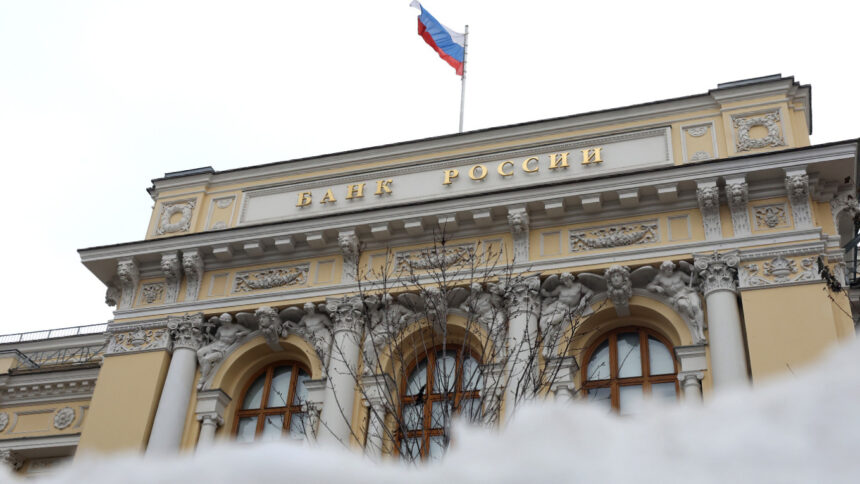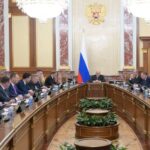In February 2022, Western governments froze Russian Central Bank assets in response to Russia’s illegal invasion of Ukraine. The total sum is estimated at around $300 billion. Most of this — $240 billion — is held in Europe.
The G7 has repeatedly declared that the assets will not be returned until Russia compensates Ukraine for the harm caused by its invasion. Moscow will never voluntarily compensate Ukraine — doing so would imply war guilt. Furthermore, the damage caused by Moscow greatly exceeds $300 billion and the prospect of having Moscow’s assets returned provides no incentive to the Kremlin to end the war. The G7’s position is wholly illogical. So far, iy has gone no further than agreeing to use interest earned on the assets to guarantee a $50 billion loan to
Ukraine. Yet it refuses to touch the rest of the money.
A debate has thus grown about whether to enforce Russia’s obligation to pay compensation by transferring its assets to Ukraine without Moscow’s consent. The new course of Washington’s foreign policy now gives this question new urgency, having suspended aid to Ukraine and demanded that Europe shoulder the burden of the continent’s defense. There is a real risk that America may withdraw all security support and even strengthen Russia by easing sanctions. Europe must therefore rapidly find the resources to sustain Ukraine while also rearming itself. Transferring Russia’s frozen assets to Ukraine could do this.
Why not give the aggressor’s money to its victim? It would have three immediate benefits. First, it would ensure that Ukraine’s financial needs are met for several years to come. $240 billion is nearly twice the total aid that Europe has given Ukraine since the start of the war. Second, it would free up Europe’s resources to focus on its own costly rearmament. Third, it would send a powerful political message of unity and resolve to Russia.
Why has this not happened already? The main source of resistance comes from within Europe. France and Germany have led this along with figures like Christine Lagarde, head of the European Central Bank. They give four reasons why.
The first is legal. Opponents argue that taking Russia’s assets violates sovereign immunity, the principle that the state itself cannot commit a crime. They are incorrect. Several independent teams of leading legal scholars and international lawyers have established a safe and legal path to transfer Russia’s assets under the doctrine of state countermeasure and have pointed out the precedents for doing so, such as U.S. sanctions against Iran. While they have set out their views in scrupulous detail, their opponents have failed to respond beyond slogans like “sovereign immunity” that ignore the arguments and miss the point.
The second argument is financial. Opponents claim that, even if it is legal to do so, Russia’s assets should not be given to Ukraine because other states — notably Saudi Arabia and China — would then sell their holdings of European public debt. This would raise borrowing costs and weaken the euro, putting economies under further pressure.
This is very unlikely. If other depositors genuinely feared for the security of their assets, they would have withdrawn them when Russia’s were frozen three years ago. Yet there was no capital flight from any Western financial system. Quiet threats by some surplus countries to sell European paper lack credibility. They would have to find buyers for these assets and alternative assets to invest in. There are no other large, rule-based economies running a deficit that could absorb these. Even if they attempted to do so, the eurozone has instruments to resist a speculative attack.
The third argument is commercial. Russia has signaled that it would seize Western corporate assets if its state assets were taken. All foreign businesses know that investments in Russia carry a high level of political risk, as evidenced by the private businesses Moscow has seized in the name of national security. Many have left for this reason. Those that remain — enriching both Russia and themselves in the process — have accepted these risks. There is no reason why risky, profit-driven decisions should deter European governments from taking actions that serve their overriding security interests.
.












